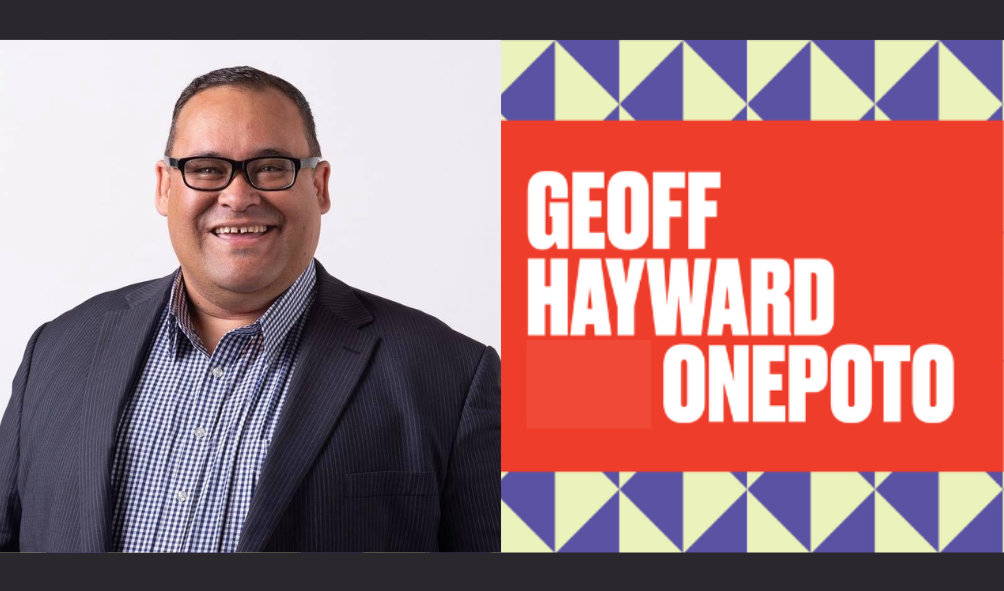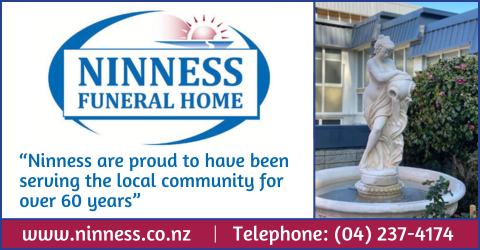
Column by Onepoto Cr – Geoff Hayward
It’s an election year, so you are going to get your share of people pitching their case to serve, and it can be a real drag for some people. I can only say to them that at least it will be over come October.
Nevertheless, when the final results come in some will be happy, and some won’t, but no one should be happy with a low voter turnout. It’s atrocious when two out of every three voters left their ballots on the table (if they got them). I’m convinced that it is not due to one factor, but a horrible recipe that has been baking for some time.
A little context: from a nationwide perspective, the average turnout has not gone over 50%, when compared to central government elections of somewhere around 75–80%. Turnout in postal elections wasn’t always this bad. The first round of postal voting in local elections 39 years ago had turnout at around 70%. While the rules and regulations for central government elections have evolved, it hasn’t been the same for local government.
Online voting isn’t a panacea. We already have elections every three years with good turnout to elect people to Parliament that don’t require people to have an internet connection. In fact, during the covid affected election of 2020, turnout was 81%! In addition, online voting will also create yet another barrier for those who cannot access or trust a computer based system, especially those who have accessibility challenges, or are unable to afford internet access.
We are therefore caught in a death spiral for local democracy: we talk a lot about making improvements, but the fundamental problems still remain. This problem has been brewing for many years and unless we do something drastic, we will fail.
Local Government NZ just released their “Local electoral reform draft position paper” this week after public consultation. I thought I would have a go to give my two cents on their recommendations. I won’t pick up everything, as there are 20 recommendations, so I urge you to go read the whole thing (be sure to have a cuppa ready beforehand).
The first five are about improving the public’s understanding of local government. I’m not going to spend a lot of time on this, because I am in support, but the key role that councils could do better is to lower the barriers to participation in the legally required processes councils have to undertake with the public, like long term plans. Imagine if we held civic assemblies in the year between an election and the LTP, to help inform councils what are the most important areas of focus. It helps to build trust with the public.
Recommendation 11 (“Government should address the anomaly faced by candidates in Māori wards and constituencies…[concerning] candidate expenditure limits”) was an issue that was recently raised by my colleague Cr Kylie Wihapi, who is our inaugural Māori ward representative. It is hardly something that most people realise, but if it is harder to campaign across the entire city when the spending limits haven’t changed in almost 25 years. We should have limits, but they should also adjust over time.
Regarding postal voting (recommendations 12 and 14): I have been on record on ending the postal ballot. I wrote this three years ago: “[in person voting] isn’t perfect, but it is what most people are used to and do participate in. Make sure we have a consistent period for advance voting and hold an election day.”
The funny thing is, we might be able to do this without additional legislative change, but an attitude shift by councils as to how they conduct elections. Thanks to legislative changes under the previous government we can already have people engage in “same day voting” where people go to a voting location, check they are on the roll, or get enrolled if they are not, before being issued a paper ballot that they can vote there and then.
I could foresee a transition over several cycles to in person voting, so we don’t have to get rid of it immediately, but we do need to consider an end date, and that can be made easier if we make voting as close as possible to the process that up to 80% of people already do every three years for Parliament.
The softening of my position is perhaps more about lowering barriers and for some people, even going outside your front door can be a challenge, so a postal ballot is still an important measure from an accessibility perspective. That said, Porirua this year is likely to trial telephone voting for those with physical impairments like limited vision, so we are making some progress here too.
I strongly support recommendation 13 (“councils should continue to expand availability of alternative ballot drop-off points such as ‘orange bins’ at supermarkets and drive-through drop-off points, and government should be encouraged to contribute to this financially.”) Here is what I wrote three years ago:
“Local councils need to go where the people are: Putting in booths at supermarkets was a good idea but people in Porirua couldn’t drop off their ballots when they commuted to work in Wellington on the train…I want to trial measures like booths in schools and Marae.”
Porirua City Council has been working hard on this, so I think we might see some progress on this in time for the election.
Recommendation 15 (The Government should amend the Electoral Act and Local Electoral Act to put the Electoral Commission in charge of administering and promoting local elections…) is also in alignment with my personal views, so to use my koro’s old expression: “Champion!”
Recommendation 17 has been the one that has got a lot of attention (“Local government and central government should move to a four-year term with elections spaced two years apart.”) This would be similar to some overseas jurisdictions. For instance the state of Virginia has what they call “off year elections” so that their state assemblies have elections in years in between federal elections.
While I didn’t agree 100% with my Labour comrade Nurredin Abdurahman in Wellington City who has already given his whakāro on this, he did say something extremely important and I want to share as well because it shouldn’t be missed:
“The elephant in the room is that residents have lost confidence in the power of their voter to affect local decision making. In order to address that, we need a much harder discussion than this sideshow about modes of voting.
We need to address, for example, whether the corporate governance model established under the Local Government Act needs reform to create more responsive, more democratic Councils.” [emphasis added]
I think that any chat about a change in the length of time a council is elected for needs to correlate to a bigger conversation regarding the ability that elected representatives have (and the public for that matter) in making effective decisions between elections. We should be careful about that whenever we want to extend the term of office and watching the current proposals on extending Parliament to a four year term don’t fill me with confidence that we will get this right…for now.

































